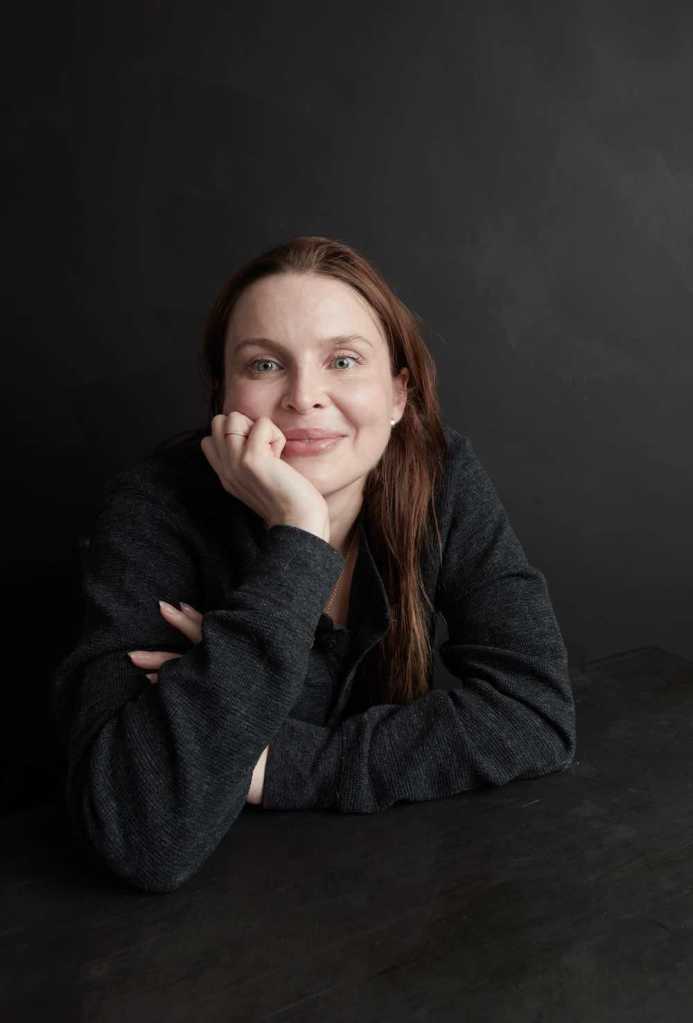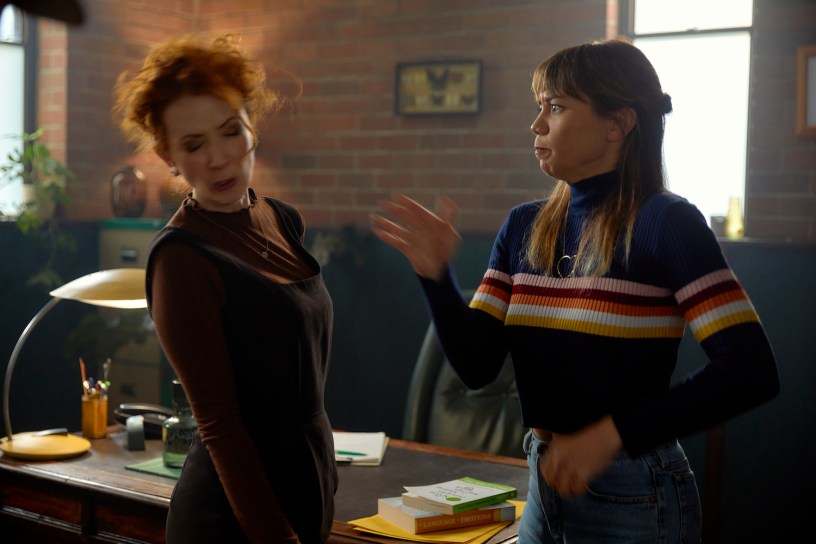For writer and director Stef Smith, creating short-form project It’s Fine, I’m Fine – about to premiere at Canneseries – was an attempt to get out of what she calls the “credit desert”.
That is, it was a bid, for both herself and her fellow collaborators, to obtain the kind of credit that could see them escape the sticky “emerging” label.
“The opportunities to step up from an emerging filmmaker towards mid-career are seemingly few and far between,” she tells IF.
“I’m certainly not alone in that experience.”
Smith is an Australian Directors Guild Award-winning commercial director, whose credits also include acclaimed short Joy Boy and sketch comedy The Lost Tapes, funded out of ABC and Screen Australia’s Fresh Blood initiative.
She describes her style as encompassing “weird, offbeat, awkward shit”. It’s Fine, I’m Fine is magical realist black comedy, following a suburban psychologist as she helps her patients explore the mess, humour, melancholy and unexpected magic of life.
Each of the 12 episodes runs from 6-10 minutes, exploring a new character’s therapy session. The ensemble cast includes Heather Mitchell, Andrew McFarlane, Arky Michael, Catherine Van-Davies, Eryn Jean Norvill, Wendy Mocke and Chris Bunton.

Produced by Photoplay and financed with support from Screen Australia and Screen NSW, It’s Fine, I’m Fine is the only Australian project selected for this year’s Canneseries, where it is screening in the short-form competition.
Smith has had a relationship with Photoplay going back to the ADG’s 2018 Commercial & Content Directing Mentorship program, and she has been on the books at Playtime for three years now.
Producing with Smith were Clare Delaney, Iain Crittenden and Florence Tourbier, with executive producers Annette Davey, Gracie Otto and Oliver Lawrance.
Smith designed It’s Fine, I’m Fine as a project that could extend to long-form, was achievable on a modest budget, and allowed her to work with an ensemble of writers and cast.
The story stems from her own positive experiences of therapy.
“I’d been going to a hypnotherapist, which is super ‘woo-woo’ – it’s all about creative visualisation. It’s weird, and it’s unorthodox, but for me I found it really liberating and interesting as a process. That rather than sit there and talk everything out, you could visualise things and find a sense of healing.
“So when I knew that I wanted to work with different actors and writers on a low budget scale, I was like, ‘What setting allows me to do that, and how do I not lose money on location changes?’
“Therapy seemed the thing that made sense, because I love and respect the the profession so much, and it opened up a framework that was almost limitless.”
On her attempt to exit the “credit desert”, Smith was determined to bring other emerging writers with her. Penning the scripts with her were Ana Maria Belo, Michael, Anna Lindner, Cecilia Morrow, Bunton, Jeanette Cronin, Michael Gupta, Nick Coyle and Mocke.
In working with the room, Smith tried not to put boundaries on what they could explore; the only framework was that the therapist’s voice and professional practice had to remain consistent.
“I wanted to be liberated from my own voice and work as a director and the showrunner, helping to craft and shape others,” she says.
“I went to people I loved, who I believe deserve opportunities… A lot of the initiatives for emerging writers, they also have an age limit. It tends to not support people who are a different age demographic. There’s lots of different pockets and intersections of our creative life where people just get left behind. So for this, I wanted to try to support as broad a network of people as I possibly could.”
Many of the writers are also actors, like Belo, who plays the therapist, as well as Mocke, Bunton, Morrow, Cronin and Michael. Smith gave all of them opportunity to write something as a vehicle for themselves, though not all chose to take this path. Cronin’s episode, for instance, instead follows a seven-year-old boy obsessed with his own poo.
Outside of It’s Fine, I’m Fine Smith is developing a number of long-form projects, such as mystery-drama series FISH with Belinda Dean’s Confidante Pictures, which was shortlisted for Sundance New Voices Lab and a semifinalist in the ScreenCraft Drama Pilot competition.
The project is about a young woman coming to terms with her family’s dark history, spanning domestic violence in a small country town, and as the title hints, trout aquaculture. In shopping the project, Smith has found the topic of DV taboo in the Australian market.
“Australia is so backwards in the way we deal with authentic stories of child abuse and childhood trauma. Coming from a writer with that experience, I think that it’ll probably be something that is more appealing to the UK market because there they deal with darker stuff on a much higher turnover rate.”
Lamenting that it takes a “lifetime” to get self-driven projects up off the ground, Smith is also keen to find gun-for-hire work.
“What I would like is a long-form job; I just want to direct some telly for a bit. More than that, I want everyone else to get a job out of [I’m Fine, It’s Fine] as well. If it leads to employment for any of the writing team, crew or cast, then I’ll feel like I at least did something right.”
In that sense, for a project born out of career frustration and designed as a talent escalator, it is gratifying for Smith to see It’s Fine, I’m Fine make to France. Describing herself as a “little bogan loser from the country”, she’s nervous about presenting the series but is rapt for her team.
“Often we make a lot of things and they don’t get seen. That’s just the nature of our industry. I feel really grateful that I can have this opportunity and it can be shared with the entire team – that our work actually went somewhere.”
It’s Fine, I’m Fine makes its world premiere today, April 5 (French time) at Canneseries on the Espace Miramar.
Smith is attending the festival with Belo, Bunton, series editor Lily Davis and actress Margaret Pittas.
The short-form jury is headed this year by British novelist and screenwriter Anthony Horowitz, joined by British actress Chinenye Ezeudu (Sex Education) and French actor, director and composer Marc Ruchmann (Plan Coeur).



